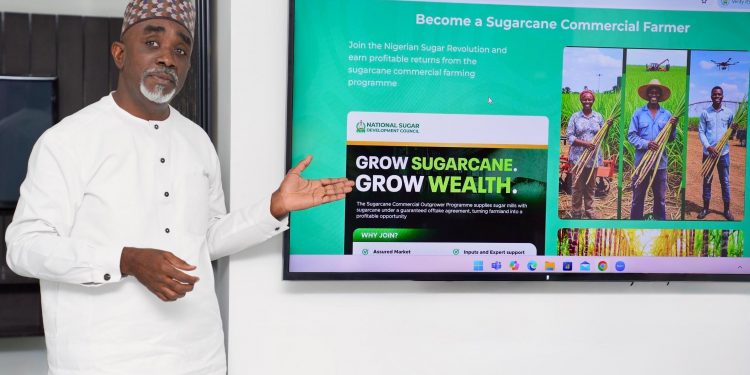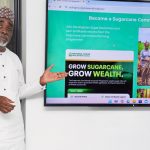The National Sugar Development Council (NSDC) has launched the Sugarcane Outgrower Development Programme (SODP), a strategic initiative designed to scale up domestic sugarcane cultivation, strengthen Nigeria’s sugar value chain, and promote rural industrialisation in line with the Nigeria Sugar Master Plan (NSMP II).
Executive Secretary/Chief Executive Officer of NSDC, Kamar Bakrin, said the new programme marks a defining step in Nigeria’s quest for sugar self-sufficiency and inclusive agricultural growth. According to him, the SODP will bridge the production gap between industrial sugar estates and local farmers while enhancing national food security and reducing import dependency.
“The SODP is designed to boost local sugarcane cultivation, reduce Nigeria’s dependence on sugar imports, and create opportunities for inclusive economic growth by integrating outgrower farmers into the industry’s supply chain. This programme will complement the output of existing large-scale sugar estates and help close the national supply gap,” Bakrin stated.
He explained that the initiative represents a new model of collaboration between the government, private investors, and farming communities. “For the first time, a structured outgrower development programme will formally integrate farmers at all levels into the national sugar value chain. This campaign is about reaching every stakeholder, from large-scale operators to smallholder farmers, and ensuring that everyone has a fair opportunity to contribute to Nigeria’s journey towards self-sufficiency in sugar production,” he added.
The SODP, according to the council, will not only focus on production but will also strengthen capacity-building, technology transfer, and access to inputs and markets for participating farmers. It is expected to improve the livelihoods of rural dwellers, create thousands of jobs, and stimulate industrial activities within sugar-producing zones.
Head of Out-Grower Management at the NSDC, Mrs. Lade Offurum, provided more insight into the implementation framework, stating that the programme will target three key categories of participants: commercial farmers cultivating 50–500 hectares and above, farming cooperatives operating clusters of 30–50 hectares, and individual farmers or groups jointly farming at least 30 hectares.
She said participating farmers will receive technical assistance, access to improved seed varieties, irrigation support, and guaranteed off-take arrangements from sugar estates. “Our aim is to ensure that every farmer who participates can operate profitably and sustainably. This model will ensure steady raw material supply for sugar refineries while transforming rural economies into viable agribusiness zones,” Offurum noted.
The programme will also encourage partnerships with private investors and development agencies to expand financing, infrastructure, and mechanisation support for outgrowers.
Industry observers have described the initiative as a timely intervention that could significantly reduce Nigeria’s sugar import bill, strengthen domestic production, and enhance foreign exchange savings. Analysts also believe it will attract more youth and women into agribusiness through structured participation in the sugar value chain.
With the SODP, the NSDC aims to move Nigeria closer to achieving the production targets set under the revised NSMP II, which prioritises self-sufficiency, sustainability, and inclusive economic development in the sugar sector.










